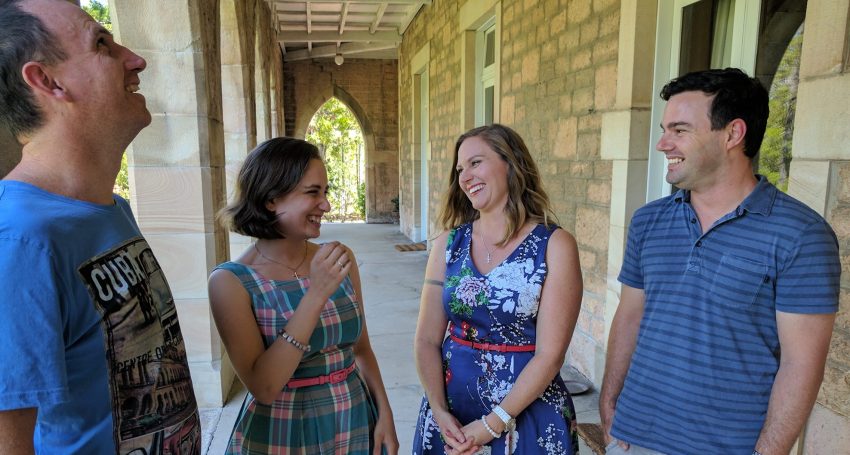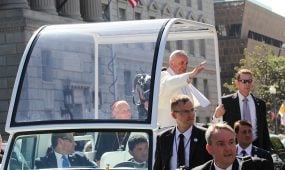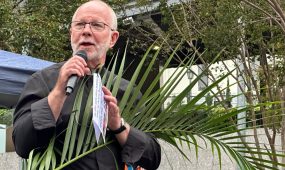Silences that undo us: what is theology for?
Reflections
“The constant danger and temptation internal to theology is idolatry, creating God in our own image, using God to secure a world (or a church, or a self) that conforms to our desires to be in the right, to have a purchase on the good, the true, and the beautiful,” reflects the Academic Dean at St Francis College Dr Peter Kline

Why would anyone study theology? One answer might be the church’s desire to preserve and prolong itself. Ordination candidates are required to study theology because they need to know the church’s teachings, which they will be required to protect and pass on. Another answer might be an individual’s desire to clarify for her- or himself what they believe. An interested layperson might study theology because she or he has questions about the faith that calls for a more focused and in-depth path of exploration. Still another answer might be that studying theology can give one an upper-hand in current cultural and political debates, say, about same-sex marriage or the rights of people seeking asylum.
Advertisement
What all three of these answers hold in common is that they are centred on the human need to produce meaning, whether that meaning is located in an institution like the church, in an individual’s mind and heart, or on the larger cultural/political stage. Theology approached in this way serves the very deep-seated human desire to inhabit a world that makes sense, which is to say, a world that can be mapped and traversed with language that is ‘ours’ or ‘mine’: our tradition, my beliefs, my politics. God, very conveniently, can serve as an ultimate foundation or anchor for such meaning. God is the guarantee that the church, or my individual life, or even the course of western civilisation, is ultimately grounded and meaningful.
But what if the point of theology is not ultimately to fold everything back into humanly meaningful categories and concepts? What if the point of theology is something more difficult and troubling? What if God is only ever found on the edge of human meaning, or as its interruption? The constant danger and temptation internal to theology is idolatry, creating God in our own image, using God to secure a world (or a church, or a self) that conforms to our desires to be in the right, to have a purchase on the good, the true, and the beautiful. As Anne Lamott helpfully puts it, “You can safely assume you’ve created God in your own image when it turns out that God hates all the same people you do.” What gets lost when God is directly made the foundation of our projects of meaning are the silences that carry us both beyond and further into ourselves, silences that open spaces outside the slide toward mastery and ownership that plagues all human meaning-making, theology included.
Advertisement
Such silences can be cultivated intentionally in prayer, liturgy or art. But more basic are the silences that visit us beyond our control—above all the silence, the interruption of meaning, that comes with suffering. Perhaps theology is responsible above all to suffering, to bodies that suffer, and to the silences that form in and around them. When we lose such silences, or drown them out with our religious and political noise, we lose God, who, according to Christians, is nowhere more present than in the suffering flesh of Jesus, who suffers because he makes himself one with our suffering. The provocative claim of the Christian gospel is not that suffering will be redeemed or made useful — a repugnant idea — but that its silences and terrors are where God draws near, making possible an affirmation of life that exceeds understanding.
Christian Wiman puts it like this: “The purpose of theology — the purpose of any thinking about God — is to make the silences clearer and starker to us, to make the unmeaning — by which I mean those aspects of the divine that will not be reduced to human meanings — more irreducible and more terrible, and thus ultimately more wonderful.”
Cultivating wonder, both painful and joyful, rather than self-referential meaning, might be a better way to talk about the purpose of theology. To study theology is not primarily to seek answers. It is to expose ourselves to silences that undo us.
Peter will be teaching Introduction to Christian Theology at St Francis College in the first semester of 2019. To find out more about studying theology at St Francis, please contact the Academic Dean Dr Peter Kline at pkline@ministryeducation.org.au.







